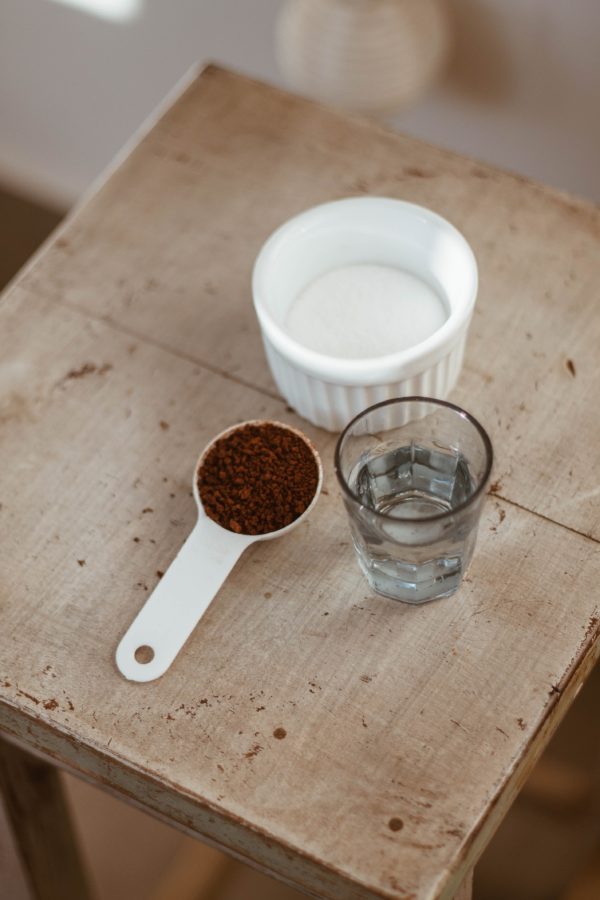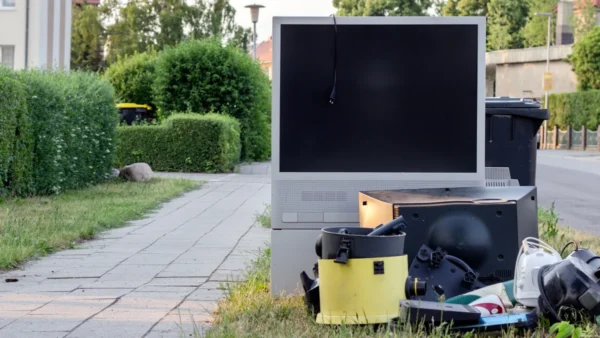
Ground Coffee vs Instant Coffee

Instant gets a bad rep in the coffee community. For a long time, I was ashamed to admit that my first experience with coffee was a weak cup of instant. The colour was a light, mud-like brown and the taste was not much better.
Sugar and milk were essential to round off the bitterness and after a while, I found a balance that I quite enjoyed.
I remember my first experience with fresh coffee. The grounds looked similar to the instant granules but that was where the similarities ended. The smell, oh my goodness, the smell. So rich and it had a depth I had never experienced before.
My friend showed me how to brew fresh coffee properly and I was hooked. I no longer needed the sugar and milk to make it palatable and I found a coffee brewing routine that gives me joy every day.
In all my recent delving into everything coffee related, I got to thinking over my old instant habit. This got me wondering what actually IS instant coffee and is it worse for you compared to the fresh grounds?
It turns out instant is very similar in a lot of ways to ground coffee. It’s made from brewed coffee that has been processed and dehydrated to a powder form. The health benefits are very similar to fresh coffee and it contains less caffeine.
I’ve looked into the most common considerations when it comes to fresh vs instant and have compiled this in-depth comparison to help you choose the one that best suits you!
What Is Ground Coffee?
To whet your appetite ready for this coffee comparison stand-off let’s first take it back to basics!
Ground coffee or coffee grounds are made from the whole coffee bean. The fresh bean is processed on the plantation and shipped out to coffee shops and factories ready to be roasted to give it that lovely, dark flavor. The roasting brings out all the rich oils and gives the coffee it’s sweetness.
Coffee beans can be roasted for longer or shorter periods of time to affect flavor. For example, the espresso roast is a bit longer than coffee roasted for a filter machine.
Once the bean is cooled, it’s almost ready to brew. The final step is the grinding of the whole bean into smaller particles, also known as coffee grounds.
The size of the coffee grounds is important when it comes to brewing that delicious cup of joe. A finer grind is ideal for an espresso machine whereas a much courser grind is needed for a french press.
The coffee grounds are steeped in water to extract the lovely dark java. The grounds do not dissolve in the liquid so must be filtered out in some manner before the coffee is drunk. This can be done using a filter paper, french press, or anything similar.
What Is Instant Coffee?
Instant coffee differs from the fresh coffee in that the dry coffee completely dissolves when added to water. It can be brewed in a mug with no specialist equipment needed.
Instant coffee is made from dehydrated fresh coffee. The coffee is brewed and then dried out to leave a powder which can be stored and rehydrated at any point.
The instant coffee is very similar to fresh coffee as it shares the same origin.
Caffeine

One of the biggest differences between fresh coffee and instant coffee is the caffeine content. Caffeine is a small molecule that acts on your body to give you that alert, awake feeling.
Caffeine improves alertness and wakefulness and has been linked with a few major health benefits. This umbrella review study has linked caffeine in coffee with lower risks of cardiovascular disease, lower risks of mortality, and less impact from liver cirrhosis.
Fresh coffee has a higher caffeine content of around 145mg per 8oz on average. On average, an 8oz cup of instant contains around 63mg. So if it’s the benefits found in caffeine that you’re after, then ground coffee is best.
An important consideration when it comes to caffeine is that it affects individuals differently. Around 20% of the population struggles to tolerate the high caffeine content of coffee.This study has looked into a genetic cause for this.
Caffeine intolerant people find that high levels of caffeine causes anxiety, insomnia, and “jitters”. If you suffer from this after drinking coffee then minimizing your caffeine intake is advisable.
Antioxidants
Coffee is very rich in antioxidants. These are powerful chemicals that are very beneficial to human health. The antioxidants travel around your body and “mop-up” reactive oxygen molecules that form as a result of normal metabolism. If these oxygen species are left unchecked they go on to cause cellular damage that leads to injury, illness, and cancer.
Coffee is one of the leading contributors of antioxidants in the western diet. This study ranked coffee as number 11 out of 100 foods that are rich in antioxidants.
When instant coffee is compared to fresh the amount of antioxidants doesn’t vary too wildly. So you’ll experience all the great health benefits no matter which form the coffee is in.
Taste
The great taste of your morning cup of java all comes back to the bean quality and processing. Instant coffee is made from Robusta beans. These beans, although high in caffeine, contain less of the great tasting sugars and fats found in the fresh Arabica beans. This ends up compromising the taste although it saves costs.
The processing of the instant coffee, the extra heating and cooling also ultimately impacts taste as well. The result is a more watered down, bitter flavor compared to fresh grounds.
Brewing
The brewing process is a big decider when it comes to ground coffee vs instant. Instant has the upper hand when it comes to ease of brewing. All you need is warm water and a coffee mug.

Instant is great if all you have to hand is a kettle and, as the name suggests, you end up with a cup of coffee in an instant.
Ground coffee takes a bit longer and you do need some equipment to brew the perfect cup of joe. The grounds need some time to steep in the hot water and then need to be strained out. This can be done using a french press or a filter paper.
For more extravagant brewing methods such as making espresso a larger investment of time and equipment is needed. It takes practice to pull the perfect shot and the high pressure brewing method costs money to achieve.
Storage
Another point to consider when choosing between ground coffee and instant is the shelf life. Freshly ground coffee needs to be kept in a sealed container and will last in the pantry for 3-5 months. It does turn stale over time and depending on taste preference you may want to use it sooner than this.
Instant coffee, also in a sealed container, will last for anywhere between 2-20 years in the pantry. Eventually, it can go stale and spoil but it takes a long time to end up undrinkable.
If you want to keep fresh ground coffee for longer, an unopened bag will keep in the freezer for 1-2 years. If the bag is already opened then the freezer won’t extend its shelf life for very long at all.
Cost
Fresh coffee is more expensive compared to instant coffee. Although the prices per ounce of coffee varies, fresh won’t stretch to as many cups as the same volume of instant.
Freshly brewed coffee requires more equipment as well so that’s worth considering.
My two cents on this is the taste you get from lovely fresh coffee far exceeds the small increase in price!
Take-Home
Instant coffee is similar to fresh grounds; it’s just brewed, dehydrated, and freeze-dried. It’s a bit cheaper, has almost all the health benefits, and keeps longer. My verdict is that fresh coffee has to take the upper hand when it comes to taste and nothing beats that lovely coffee brewing routine that only comes with the real deal.

By: Scott Deans












































